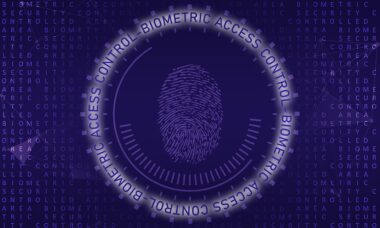Open Source Platforms for Blockchain Identity Management
Blockchain technology has revolutionized various sectors, especially in identity management. The open-source approach promotes transparency and collaboration among developers. This enables organizations to create customized solutions according to their specific needs. Some notable platforms include Hyperledger Indy, which features tools for decentralized identity management. This platform allows individuals to control their own digital identities, eliminating the need for third-party services. Another prominent platform is uPort, enabling users to manage credentials effectively. It helps build decentralized applications while ensuring user privacy through secure identity management. Additionally, Sovrin offers a universal decentralized identity ecosystem that guarantees user control and privacy. With its focus on self-sovereignty, individuals can manage personal data confidently. Other libraries, such as Veres One, serve as identity protocols to enable verifiable credentials. As these platforms continue to evolve, more organizations are likely to adopt blockchain for identity management. The integration of decentralized approaches enhances trust while reducing fraud risks. Overall, open-source platforms hold the potential to reshape the way identities are managed in the digital realm, providing ethical solutions that prioritize individual sovereignty and privacy.
With the increasing relevance of data privacy, open-source blockchain identity management platforms have gained prominence. They offer innovative solutions that prioritize user-owned data across a variety of applications. One key advantage is the elimination of intermediaries, empowering users to have complete control over their identities. Moreover, decentralized systems enhance data security, as sensitive information is less vulnerable to centralized attacks. Users can create verifiable identities without relying on a single point of failure. This approach leads to increased trust in digital interactions, critical for online services where identity verification is necessary. An example of this is the implementation of decentralized identifiers (DIDs) in various blockchain systems. DIDs are unique identifiers linked to decentralized networks, ensuring authenticity. Furthermore, platforms like Microsoft’s ION utilize the Bitcoin blockchain to manage decentralized identities effectively. They provide flexible tools for developers, promoting broader adoption of this technology. As businesses and individuals seek reliable identity solutions, these open-source platforms present attractive options. They lead to more secure and user-friendly experiences while fostering an environment that respects individual freedoms and data protection. The ongoing development of these technologies suggests a promising future for blockchain-based identity management.
Key Benefits of Open Source Identity Management
The numerous benefits associated with open-source blockchain identity management platforms necessitate a closer examination. One significant advantage is cost-effectiveness, as organizations can customize their solutions without incurring hefty licensing fees. This democratizes access to cutting-edge technology, enabling even smaller entities to enhance their identity processes. Additionally, the collaborative nature of open-source projects encourages innovation, as developers can continuously improve upon existing solutions. Faster evocations of security patches and features are possible due to active community involvement. Flexibility is another vital aspect; organizations can adapt tools according to their evolving needs without waiting for a vendor’s approval. They can integrate various functionalities or even expand upon the core platform as required. The usage of standard protocols and cross-platform compatibility further ensures seamless integration with existing systems. With open-source frameworks, users are not locked into a single vendor’s ecosystem, fostering healthy competition. They promote the sharing of ideas and expertise, which can lead to better practices in the field. Ultimately, these benefits illustrate how open-source identity management helps unlock new possibilities for individuals and enterprises in managing identities securely.
The rise of decentralized identity management emphasizes the importance of interoperability in blockchain systems. Users often navigate numerous platforms, each with distinct protocols and standards. Open-source platforms aim to harmonize these differences, allowing seamless interaction among various networks. They establish a baseline for identities managed across different ecosystems while ensuring secure data exchange. For instance, the Decentralized Identity Foundation is actively developing standards that promote uniformity in practices. By emphasizing interoperability, users experience enhanced convenience and confidence when managing identities. This also enables service providers to collaborate easily, fostering a vast network of trusted services with a shared infrastructure. With the integration of systems, innovative applications emerge tailored to unique identity needs, allowing extensive integration across diverse use cases. One prominent example includes initiatives that facilitate cross-border digital identity verification, streamlining processes while addressing regulatory compliance. Additionally, open-source platforms are vital for ensuring user-centric design, allowing flexibility in how identities are expressed or managed. This user empowerment drives adoption further, as individuals appreciate having control over their data. Overall, interoperability is crucial for building a robust foundation in blockchain identity management, essential for widespread usage and acceptance.
Challenges in Adoption
Despite the advantages of open-source blockchain identity management platforms, several challenges hinder widespread adoption. One critical concern is the regulatory landscape, as laws governing data protection vary significantly across countries. Organizations must navigate different legal frameworks, complicating compliance efforts. Additionally, concerns about security persist, as threats continually evolve with advancements in technology. Open-source code can be scrutinized for vulnerabilities, increasing the necessity for thorough audit trails and security assessments. Furthermore, the lack of awareness and understanding of blockchain technology among stakeholders poses another challenge. Business executives and IT departments alike need education on adopting these emerging tools effectively. Also, scaling solutions to accommodate a growing user base while maintaining efficiency can complicate implementation. Open-source projects often rely on volunteer contributions, which can lead to inconsistencies in code quality. This unpredictability might deter enterprises from fully committing to decentralized identity solutions. Simplifying user experience becomes paramount; individuals must find the interfaces intuitive and accessible. When seen holistically, addressing these challenges is crucial to unlocking the full potential of blockchain identity management. Doing so will pave the way for a more secure and user-centric future in identity verification.
Future trends demonstrate a strong and positive trajectory for open-source blockchain identity management platforms. Innovations within the industry are continually reshaping the landscape of identity verification and authentication. The integration of biometric technologies alongside blockchain is one notable trend; these solutions offer enhanced security layers, reducing the risk of identity theft. Coupled with decentralized identity frameworks, biometrics could enable seamless verification while ensuring user autonomy. Another trend gaining traction is the emphasis on user-driven design principles, prioritizing accessibility and ease of use. Developers are increasingly focusing on creating intuitive user interfaces that facilitate broader adoption. Community engagement plays a vital role in shaping future developments, as stakeholders contribute ideas and insights to improve platforms continuously. Moreover, the expansion of educational initiatives around blockchain fundamentals aims to boost awareness further, attracting more businesses to adopt these technologies. Blockchain’s ability to support multiple identity use cases will likely lead to a flourishing ecosystem, transforming traditional notions of identity management. At the macro level, wider recognition of individual rights concerning data ownership and privacy will play a key role. As these trends unfold, the importance of user-centric identity solutions becomes increasingly evident.
Conclusion
In conclusion, open-source platforms for blockchain identity management offer immense potential for revolutionizing how identities are managed. They promote transparency, security, and user freedom, which are paramount in an increasingly digital world. By leveraging decentralized technologies, individuals can regain control over their personal information, challenging traditional models that rely on centralized authorities. These platforms continually evolve, driving innovation and collaboration among developers. Addressing challenges will be crucial in ensuring successful adoption, fostering trust and confidence among consumers and businesses alike. As the ecosystem matures, interoperability will play an even more significant role, enabling seamless data exchange across various networks. The emphasis on user-centric design will also facilitate broader acceptance, allowing users to manage identities intuitively. Furthermore, the integration of advanced technologies such as biometrics will enhance overall security and convenience in identity verification processes. Organizations need to remain proactive in understanding and implementing these solutions to stay ahead in the competitive landscape. Overall, the future promises a significant transformation in identity management through open-source blockchain technology, paving the way for a more seamless, secure, and ethical digital environment.





